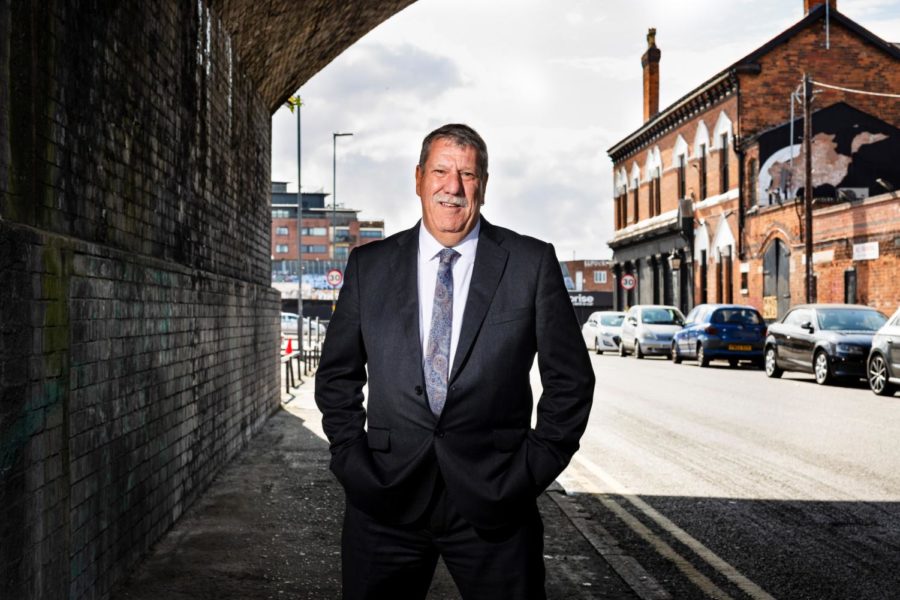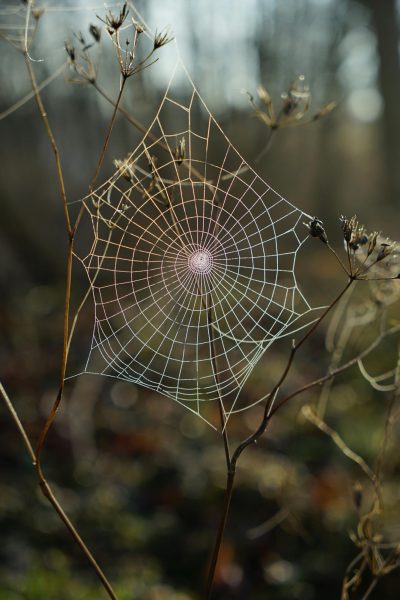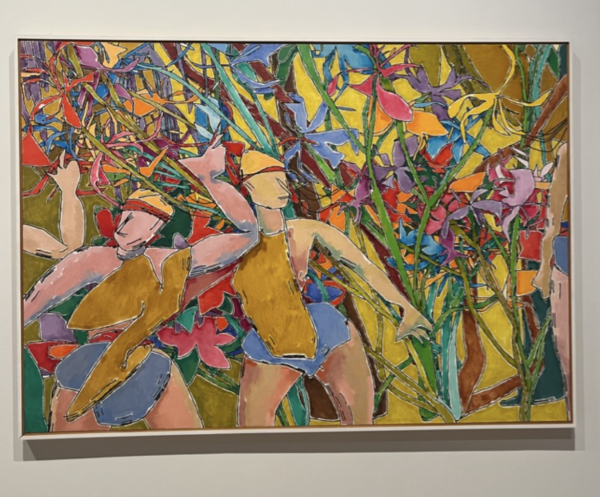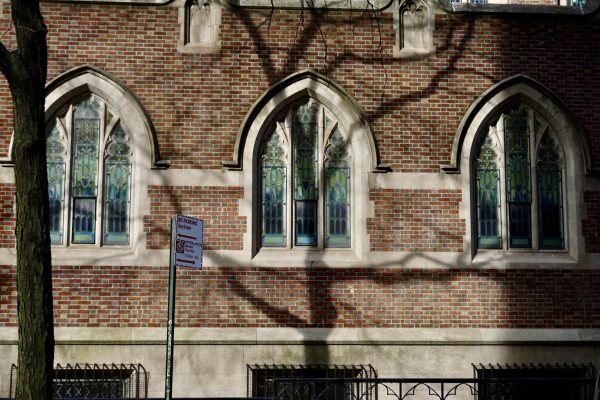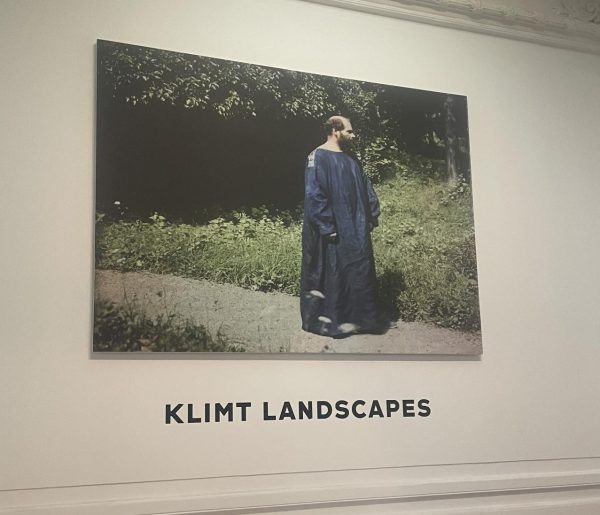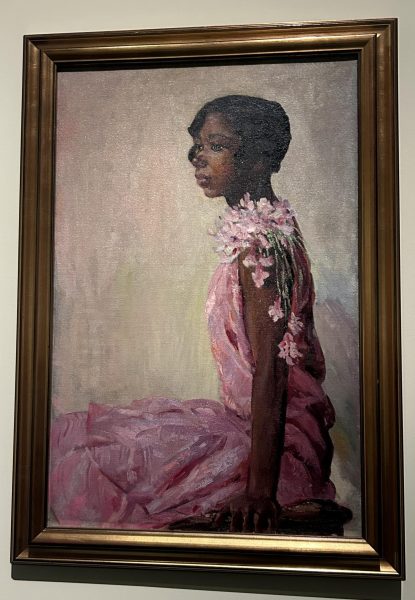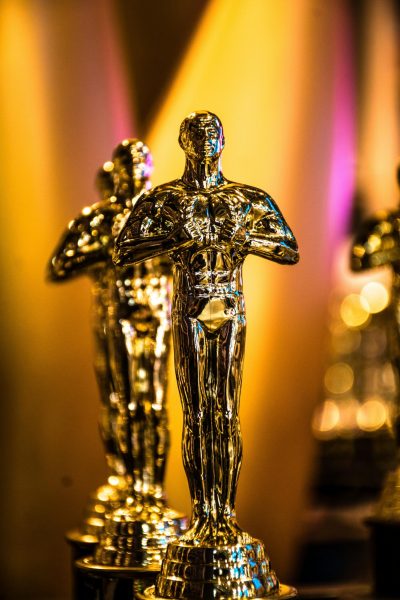The Legacy of the Peaky Blinders: A Conversation with a Descendant
A conversation with Peaky Blinder descendant, Professor Carl Chinn, in which we discuss history and the veracity of the Netflix series.
Andrew Fox - Courtesy of Carl Chinn
Here is Professor Carl Chinn under the railway arches in Adderley Street, where the first attack took place by the men called Peaky Blinders. In the background is the Rainbow pub where the men insulted their victim before the assault.
The story of the gangs in early twentieth century Birmingham, England has recently caught international attention through their depiction in the BBC show Peaky Blinders. It is one of the most popular shows on Netflix right now with plots that cover themes such as industrialization, post-war life, politics, and family. The show portrays the world at the time and sheds light on issues that we are still experiencing today.
For many years, there has been a tendency to glamorize gangsterism and to associate it with mafia-style tropes such as those depicted in the 1987 movie, The Untouchables. This is very clear through Peaky Blinders, which follows flawed but attractive characters such as Thomas Shelby, who, despite being a violent criminal, has redeeming qualities, like his love for his family.
The Peaky Blinders show also shines a light on both Birmingham’s fascinating history and its struggle with issues such as discrimination, inequality, and understanding the past for millions of viewers — including those located outside of England. The show also gave the real Peaky Blinders gang a cultural rebirth. Their true legacy lives on through their descendants, especially those who study and learn from the past.
I reached out to social historian Professor Carl Chinn who has studied Birmingham gangs for decades and is a descendant of Edward Derrick, an original Peaky Blinder. Director of the BirminghamLives project, which collects working-class memories, Chinn leads history tours of Birmingham and collaborates with local history projects in several schools. Professor Chinn’s publications and broadcasts are deeply affected by his family’s working-class background and his life in Birmingham. He also passionately believes that history must be democratized because each and every person has made their mark upon history and has a story to tell.
Professor Chinn is the author of 34 books including Peaky Blinders: The Real Story. Though he has no involvement with the Netflix series, Chinn often reflects on the fact that the show has been excellent for his city of Birmingham because it has drawn a lot of positive attention, despite the show’s focus on gangsterism.
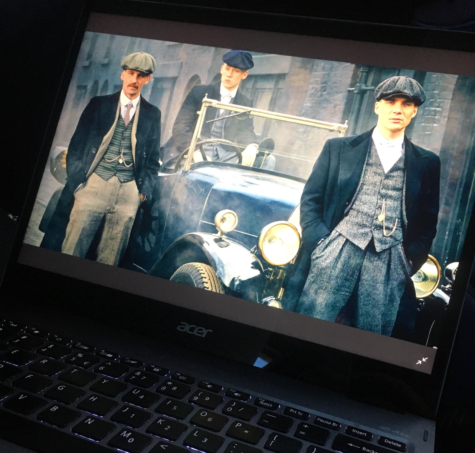
“It has attracted a worldwide audience and a lot of people have wanted to come to Birmingham. It’s also as a result given me an opportunity to write about the real story of the Peaky Blinders,” said Professor Chinn in my interview with him. “There are positives of the series, as it is very important for Birmingham, and also it’s affected me personally, coming to the question about the reality.”
Professor Chinn also believes that there is much intersectionality among various topics that are connected to our history. And to better understand history, even in the case of the Peaky Blinders, he says that we need to understand and respect each other’s backgrounds first. Before we commenced our interview, he asked to learn more about my Muslim Bengali-American heritage and greeted me with an “Assalamualaikum” [meaning peace to you—an Islamic greeting] to then discuss how many people of the same background as me make up a part of the life in Birmingham. Below is the transcript of our interview.
How different is the Peaky Blinders Netflix series from what history’s reality tells us?
“The series is very different from reality. First of all, the series is set in the 1920s. There were no Peaky Blinders in Birmingham in the twenties. Some men had been Peaky Blinders, some of whom were involved in one of England’s first major organized games called the Birmingham gang. But the former Peaky Blinders were either killed in the first world war or came back as changed aging men.”
“Secondly, there were very few gang problems in Birmingham in the twenties. That was a remarkable turnaround because, in the late 19th and early 20th centuries, Birmingham was one of the most infamous cities in England for gang violence.”
“Thirdly, there wasn’t just one Peaky Blinders group as suggested in the series. There were numerous gangs of men who were known as Peaky Blinders. So the term Peaky Blinders is a generic term for the hooligans of Birmingham and Manchester. These backstreet gangs were originally called Sluggers and the terms became interchangeable.”
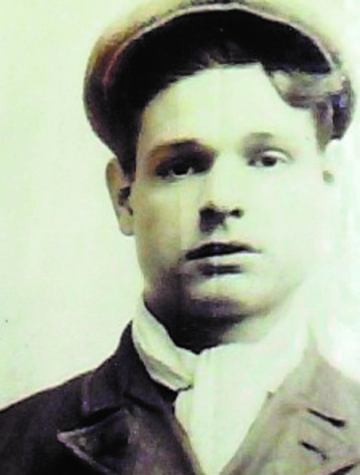
“Seeing that the show has had a huge impact on the city is interesting though, because millions of viewers are interested in visiting. And I feel like it’s a wonderful thing to have a show make an impact on communities.”
What is the legacy of Billy Kimber, the antagonist in the first season?
“Billy Kimber in the series is portrayed as a major London underground boss controlling the protection and the racecourses. In reality, Billy Kimber wasn’t small as shown in the show. He came from a very tough neighborhood called Summer Lane, not Small Heath. That’s another difference to the series where the gang is based in one district. There were Peaky Blinders in and around Small Heath, but there were Peaky Blinders in all of Birmingham’s older, tougher, poorer working-class neighborhoods.”
“He was a Peaky Blinder but he moved very quickly into pickpocketing in a small gang with his brother and others on racecourses. They did that because racecourses were free-for-alls. There was very little control over racecourses. Gangs could operate almost with impunity.”
“There were a few policemen, but they tended to take bribes. There was no real race because there was no supervision. So Billy Kimber was one of the gang’s leaders of one of several small gangs from Birmingham who collectively were known as the Brummagem Boys. The Brummagem Boys were the most vicious, violent, and frightening of the racecourse rogues. Billy Kimber brings racecourses into a slightly more ordered grouping.”
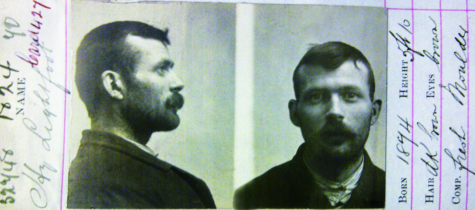
“He moves to London and he abandons his Birmingham wife to live and die in poverty. He abandoned his two children to live in poverty. Their descendants have been in touch with me and they are still very angry with Billy Kimber and aggrieved at the way their great-grandmother was treated because Kimber eventually became one of England’s most successful gangsters.”
“He moved away from gangsterism after 1921. He eventually became a religious bookmaker and he lived in very affluent circumstances on the south coast. He took his second wife and his two children by his second wife on long cruises to places like South Africa which would have cost a fortune. His two daughters by his second wife went to finish school in Switzerland and had ponies. So they had a very different experience with the two daughters and their descendants in Birmingham.”
“There is still a lot of anger amongst Billy Kimber’s Birmingham descendants. His descendants from his second marriage, one or two of them have kind of been in touch with me. But the older ones have nothing to do with it because they’re embarrassed and ashamed of how they became a wealthy family.”
How has the past gang activity affected Birmingham’s present?
“I go out to a lot of schools giving talks because it’s really important to get across that the series is a drama. It’s not reality because there is a tendency amongst a lot of lads, especially in tougher working-class neighborhoods, to be drawn in by what they think is the glamour of gangsterism. And unfortunately in too many parts of big cities like Birmingham, and I presume New York, in some areas the only men that have got wealth, fast cars, and all the bling are drug dealers and gangsters.”
“And so I want to get across a very important message that gangsterism is not glamorous. Yes, enjoy the series, but it is not reality. The reality was vicious, vile, and horrible men who preyed upon the weak and poor in their neighborhoods, who viciously attacked policemen, and who beat their wives up.”
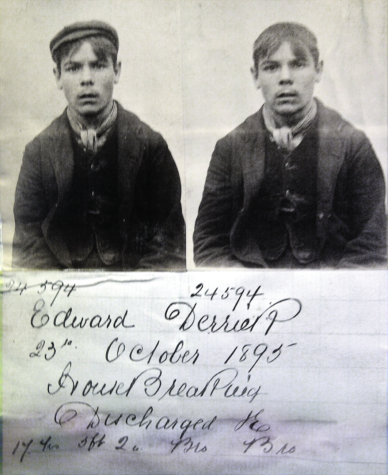
“One of whom was my great-grandfather, Edward Derrick, a nasty, horrible man who had convictions for knifing, attacking the police, attacking other people, and smashing it up in his home…My great-grandfather’s older brother John was the leader of the local Slogging Gang, the forerunners of Peaky Blinders in Sparta. So I have a reality in my family that is not something to be proud of, but something that is part of my heritage.”
“Unfortunately, it’s something that I need to share because if I’m writing about the mysteries of other people’s ancestors, it’s only right that I write about the misdeeds of my ancestors.”
This perfectly transitions to my next question. How has your ancestry impacted you today?
“My ancestors impacted me massively. I grew up well off. My dad was an illegal bookmaker rather than a legal bookmaker, but both my mom and dad were from the backstreets. Mom was from Aston, a very tough neighborhood. My dad was from Sparta, another tough street. My mom and dad were very proud of their origins.”
“They drilled it into me to realize how fortunate I was to have the opportunity to have an education. I’m the first one in my family to go past 15 years old at school and the first one to have a university education. I grew up aware of my background, my fortunate circumstances, and the debt I owed to those who came before me. I am also engrossed by family stories so my ancestry is what has made me a social historian.”
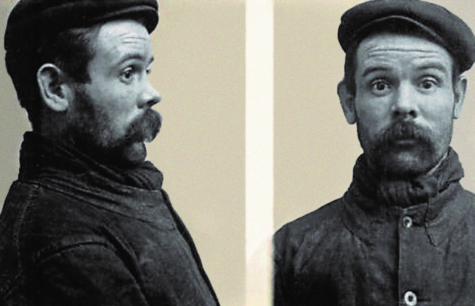
“Regarding my great-grandfather Edward Derrick, I knew about him growing up. I have never met him. He died in the mid-early 1960s…we knew that he was violent, we knew that he had abandoned my great-grandmother, but I didn’t quite realize he was a Peaky Blinder until about 15 years ago.”
“If you’re to call me in one day said ‘Carl, look at this, is this your great-grandfather?’ Yes. There were two photos of him, which I’ve got in my first book.”
I’ve definitely learned a lot from just the last few minutes. I also wanted to ask what lessons from the past do you hope the youth of today, like myself, take away from learning about our history from around the world?
“What angers me is in modern Birmingham and in modern England, absolute poverty is reduced, but the relative gap between the better off and the poor in big cities is as wide now as it was 100 years ago. I found that astonishing and appalling. So for me, looking at the past is about emphasizing inequalities, bringing them to light, but also setting challenges to modern society. I’ll give you an example, the other week I wrote for the Birmingham Mail and I did a historical piece about child poverty in the late 19th and early 20th centuries.”
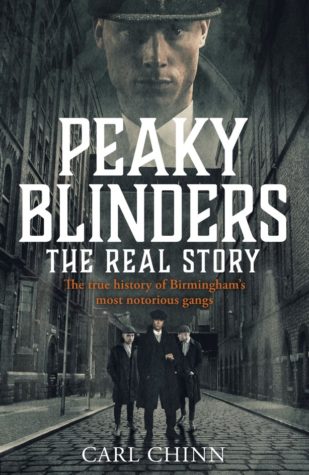
“But then I finished off with a contemporary comparison that today in Birmingham a third of our children are living in poverty. I find it shameful that there is still child poverty a hundred years after there were investigations into child poverty. It’s still rampant in our city, so yes, we must look at the past. We must understand that the past can’t bring exact lessons forward, but there are strong guidelines from the past that should inform us when we challenge inequality.”
“I think it’s really important that we celebrate our diversity. Sadly there are too many people in politics in America who have led to a lot of this rampant racism and who think that the only Americans should be white Americans. It’s the same in England. Some people think English people can only be white. Birmingham has been enriched by people from Jamaica and Barbados, from Bangladesh, from Gujarat in India, from Punjab in India, from Kashmir, from various parts of the world, even Cyprus and Poland. Now, what we should be doing is saying yes, I think we can go too far just focusing on diversity or too far focusing on unity. It’s about both. Let’s be proud of who we are together.”
*****
By reading my conversation with social historian Carl Chinn about the real Peaky Blinders and their historic legacy, I hope that you will be better able to understand the Netflix series, but also reflect on the implications of today’s social issues, so that we can come together in unity through our diversity.
To watch Peaky Blinders on Netflix (subscription required), click HERE.
“I want to get across a very important message that gangsterism is not glamorous. Yes, enjoy the series, but it is not reality. The reality was vicious, vile, and horrible men who preyed upon the weak and poor in their neighborhoods,” said Professor Carl Chinn.
Ryan Ahmed is a Managing Editor for 'The Science Survey.' He wants to uplift communities and provide unique insight on current events around the globe...

